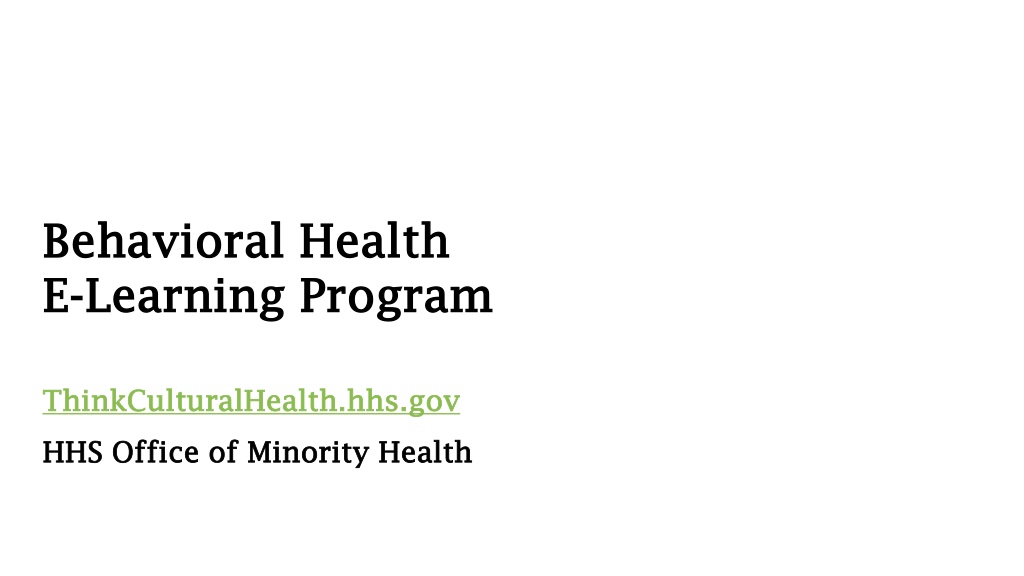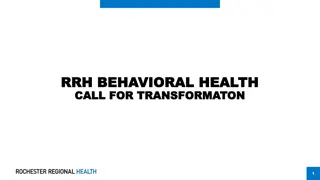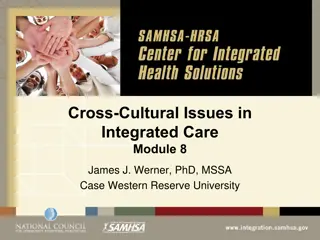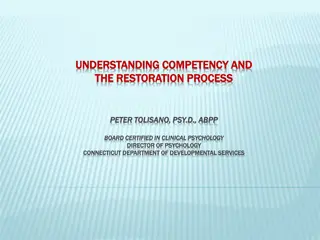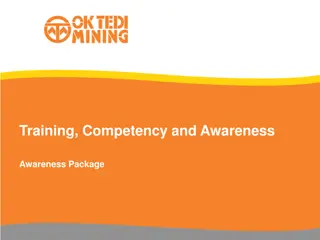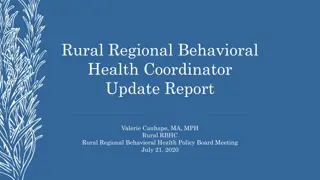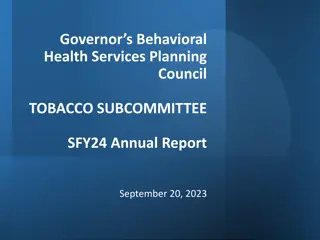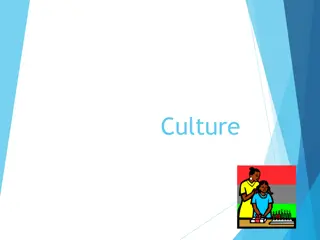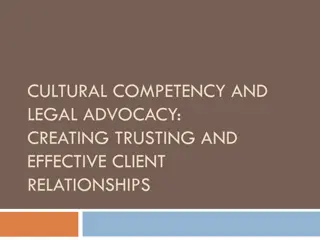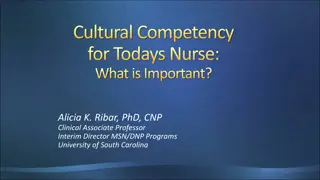Enhancing Cultural Competency in Behavioral Health Professionals
This e-learning program, developed by the HHS Office of Minority Health, focuses on improving cultural competence for behavioral health providers. It covers topics such as the connection between culture and behavioral health, the impact of cultural identity on client interactions, and strategies to engage clients from diverse backgrounds. Accredited for continuing education hours, the program includes courses on cultural and linguistic competency, self-awareness, and understanding clients' cultural identities to enhance therapeutic relationships.
Download Presentation

Please find below an Image/Link to download the presentation.
The content on the website is provided AS IS for your information and personal use only. It may not be sold, licensed, or shared on other websites without obtaining consent from the author. Download presentation by click this link. If you encounter any issues during the download, it is possible that the publisher has removed the file from their server.
E N D
Presentation Transcript
Behavioral Health Behavioral Health E E- -Learning Program Learning Program ThinkCulturalHealth.hhs.gov ThinkCulturalHealth.hhs.gov HHS Office of Minority Health HHS Office of Minority Health
Improving Cultural Competency for Behavioral Health Professionals A free e-learning program developed by the HHS Office of Minority Health to help providers build knowledge and skills related to culturally and linguistically appropriate services Topics: How culture connects to behavioral health How cultural identity affects interactions with clients How to better engage, assess, and treat clients from diverse backgrounds
Improving Cultural Competency for Behavioral Health Professionals Designed for any behavioral health provider Accredited for 5 continuing education hours for licensed alcohol and drug counselors, nurses, psychiatrists, and psychologists; and 4 hours for social workers Can be completed on your own time and at your own pace
Curriculum Content Self- Awareness Cultural Knowledge Clinical Skills
Course 1: An introduction to cultural and linguistic competency How cultural and linguistic competency helps you better understand your client s needs and provide higher quality care. Topics: Culture, cultural identity, intersectionality Cultural and linguistic competency, cultural humility Workforce factors (i.e., research, training, and professional culture) Cultural and linguistic competency as related to quality of care
Course 2: Know thyself- Increasing self- awareness How to become more aware of your cultural identity and the way it influences how you engage and interact with clients. Topics: Bias Privilege Cultural humility
Course 3: Knowing others Increasing awareness of your client s cultural identity How to learn about your clients cultural identities in order to build better therapeutic relationships. Topics: Cultural identity Stereotypes and discrimination Microaggressions Cultural concepts of distress and help-seeking behaviors
Course 4: Culturally and linguistically appropriate interventions and services How to better engage, assess, and treat clients from diverse backgrounds. Topics: Bridge communication gaps Limit bias during the assessment and diagnosis process Elicit clients explanatory models, co-create a treatment plan with clients, and use cultural adaptations
Questions? Questions? ThinkCulturalHealth.hhs.gov ThinkCulturalHealth.hhs.gov
